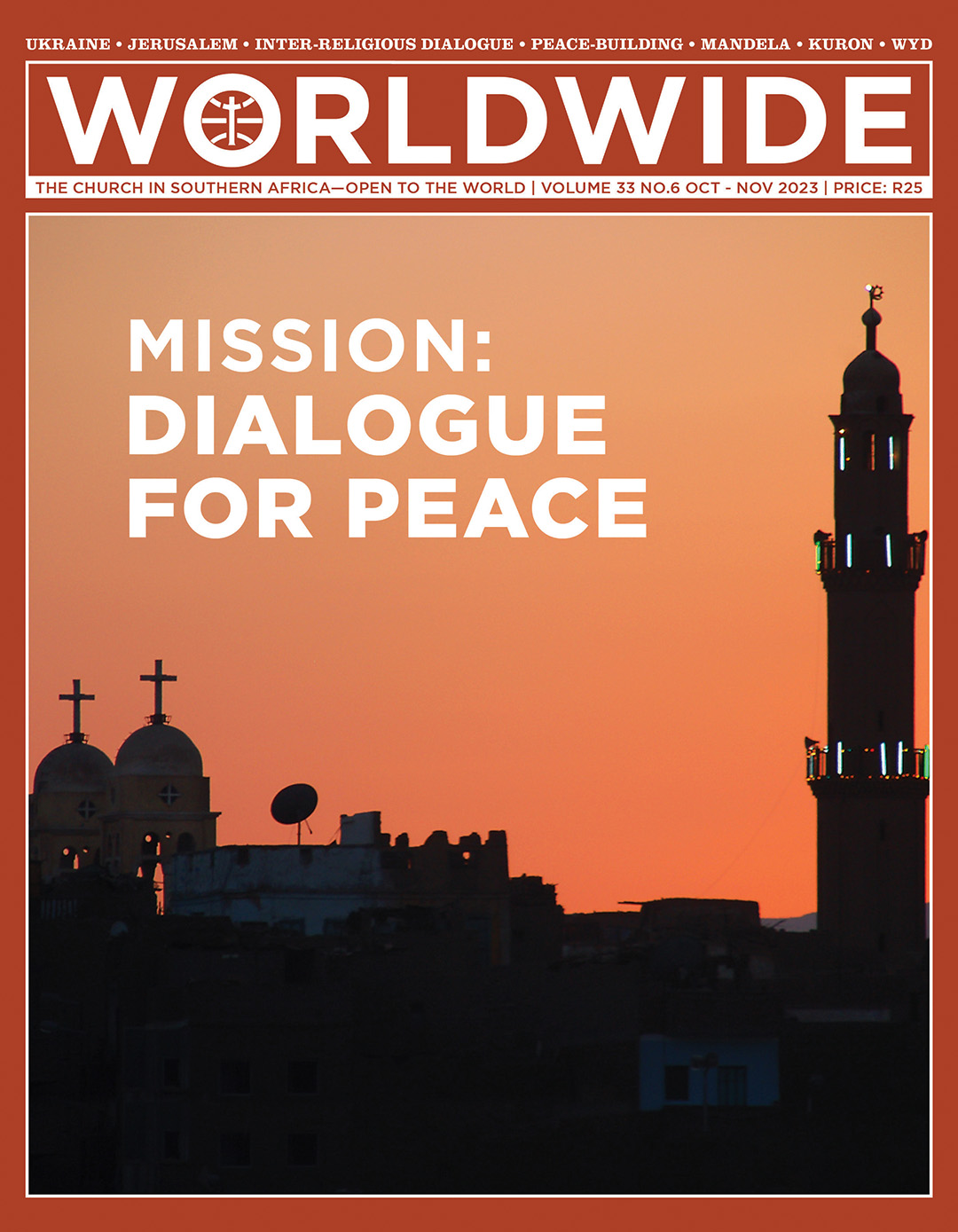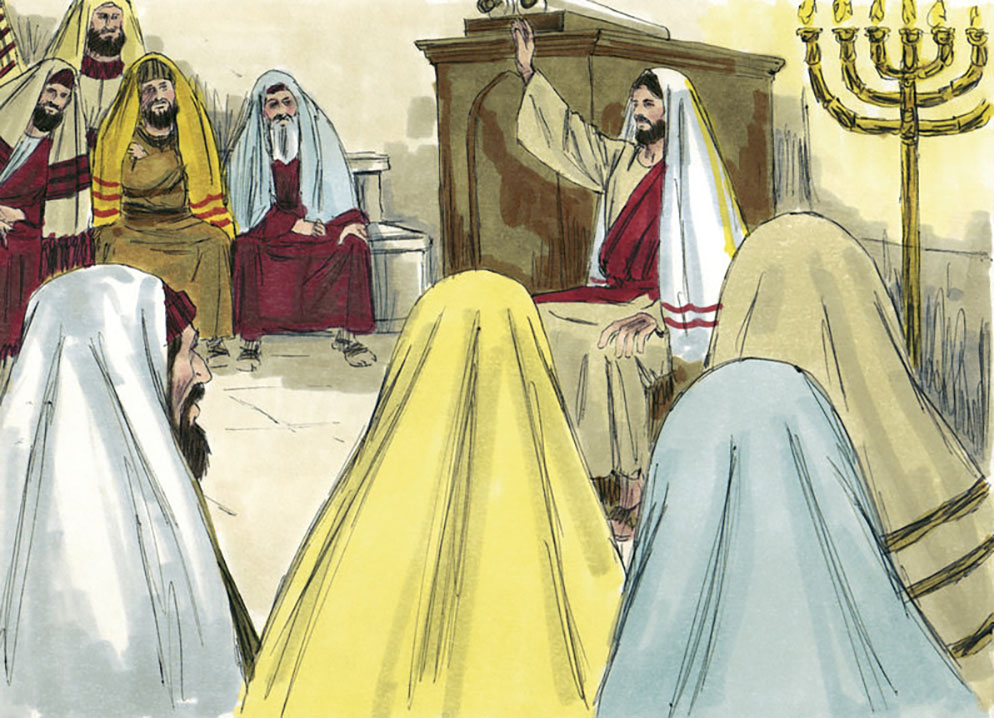
MISSION: DIALOGUE FOR PEACE
The Mosque minarets and church domes of the front cover, facing each other at twilight, transmit a sense of harmony and serenity. The two main religions of the world, Christian and Islam, are called to a mutual understanding and peace-building for the well-being of humanity. The essence of its traditions, far from fundamentalist interpretations, should lead their faithful to pursue together the values of justice and fraternity.
THE LAST WORD

An Inaugural Discourse for Fraternity (Lk 4,14-30)
BY Fr Silvano Fausti SJ | Biblist and writer
THIS PASSAGE, from St Luke’s Gospel, presents Jesus’ proclamation of the living word of fraternity, from Nazareth to the Jordan and from the Jordan to the Cross.
In the power of the Spirit, Jesus begins his ministry and inaugurates his Jubilee Year. With it, the fatherhood of God is lived out in brotherhood and sisterhood among men and women: it is an entry into the promised land. Jesus presents himself as the fulfilment of the “word of grace”, which brings God’s blessing and fulfils his promise (vv. 16-19). St Luke wants his readers to encounter this word of grace announced “today” (vv. 20s). It has its root in the past—the promise of Isaiah and the figures of Elijah and Elisha—and is actualised “today”, in the eternal today of God that has been realised once and for all in Jesus and is always actualised whenever the Word is proclaimed in his name.
The Scripture finds its fulfilment in the ear of the listener of Jesus who proclaims it (v. 21): what the Scripture promises is announced as fulfilled in Jesus and in the listening to his word, insofar as it is spoken by him, is its full fulfilment in faith, which makes happen “even here” today what he did in Capernaum then (v. 23).
In this inaugural discourse we have the authentic explanation of Jesus’ ministry
Finally, the mystery of Jesus, rejected by his own and welcomed elsewhere (vv. 22-30), anticipates his destiny of rejection and “contradicted sign” (2:34ff), which, however, will be a light that enlightens the Gentiles and shows the world the glory of Israel (2:30ff). The beginning of Jesus’ ministry also contains its end.
Jesus appears to us from the beginning more than scribe and prophet: he not only explains the word of God, but also actualises it. This actualisation does not consist in adapting it to his own time, but in ‘making it present’: he translates what the Word says into action and, in obedience, makes his life present, contemporary with it. He is the listener who fulfils it, the perfect listener in whom the Word of God finds its full execution. He, the obedient Son, is the fulfilment of every word.
Thus, for us too, fulfilling the Word means listening to the gospel. Obedience to it makes God relevant in today’s world, and makes relevant Jesus, his Son, in whom the history of every Adam finds fulfilment. The proclamation of the word of grace has the power to make us obey it and to renew our old reality in listening to it according to the promise.
It pleased God to save the world by the proclamation of the Gospel (1 Cor 1:21). The word, a weak medium and an instrument of free communion, is the power of God for the salvation of everyone who believes (Rom 1:16).
In this inaugural discourse we have the authentic explanation of Jesus’ ministry: what the end (being children of the Father in being brothers and sisters among ourselves), what the means (listening to the word of the Father), how to act (in the power of love, which is the Spirit of God), when to act (today) and for whom (for the listener).

